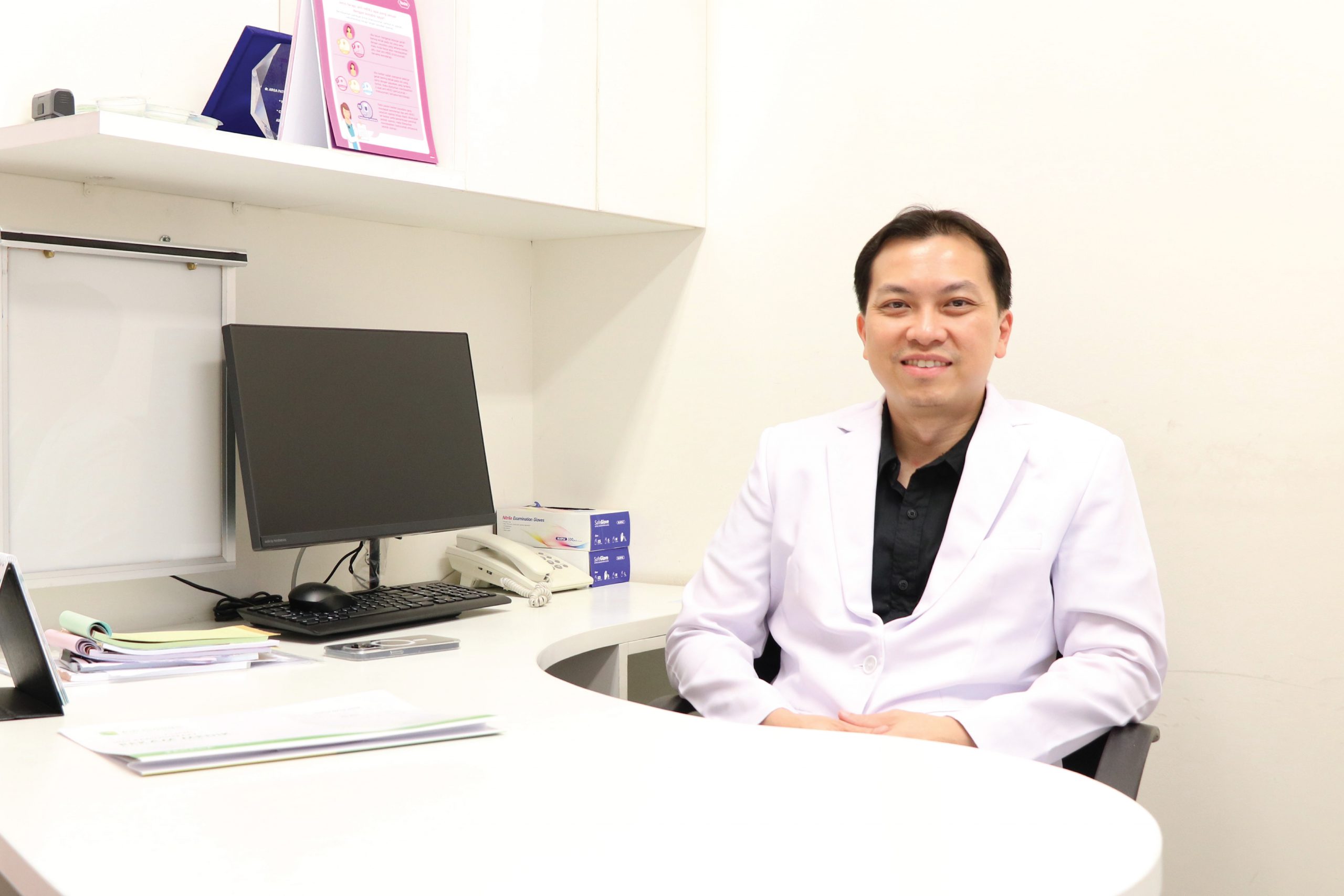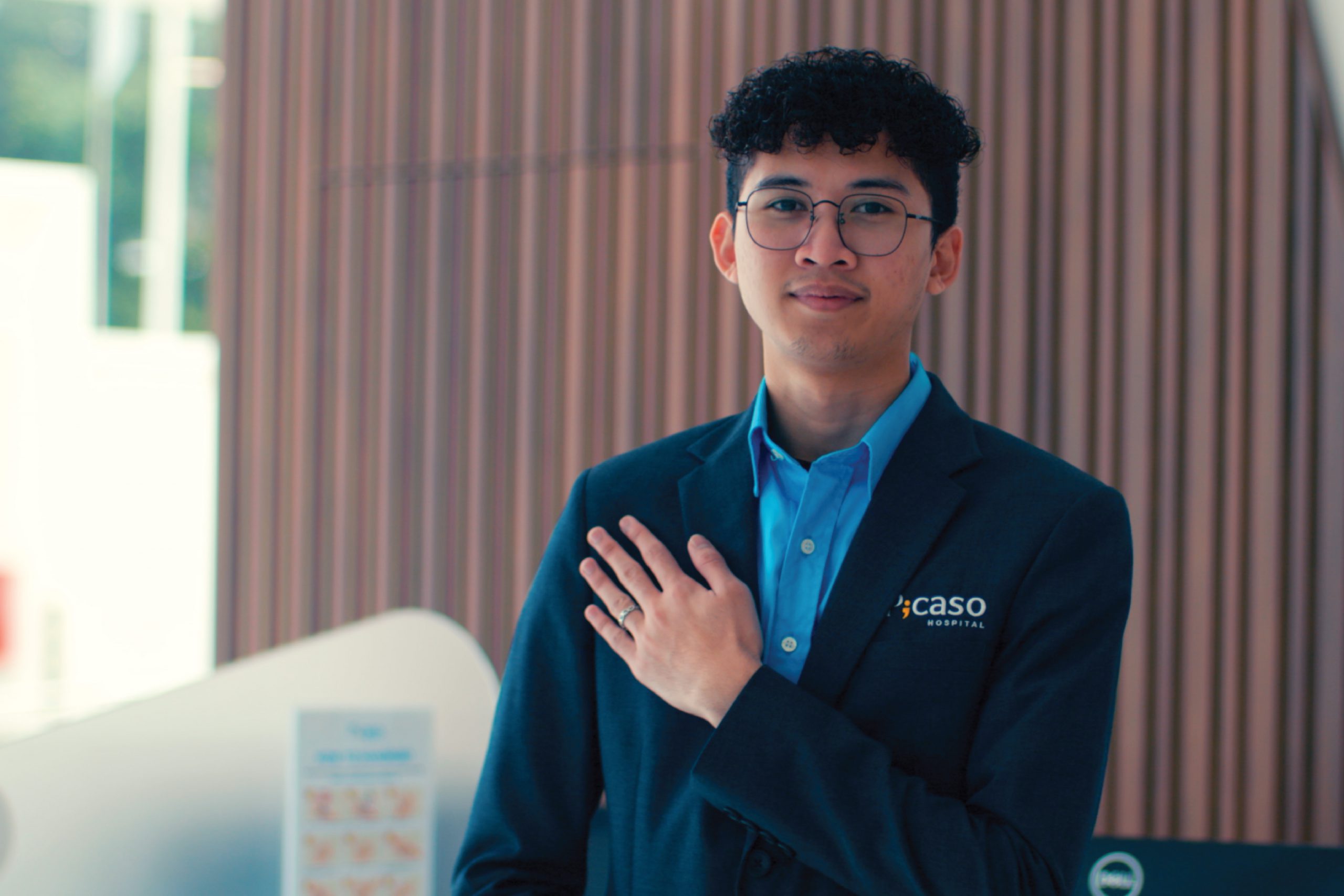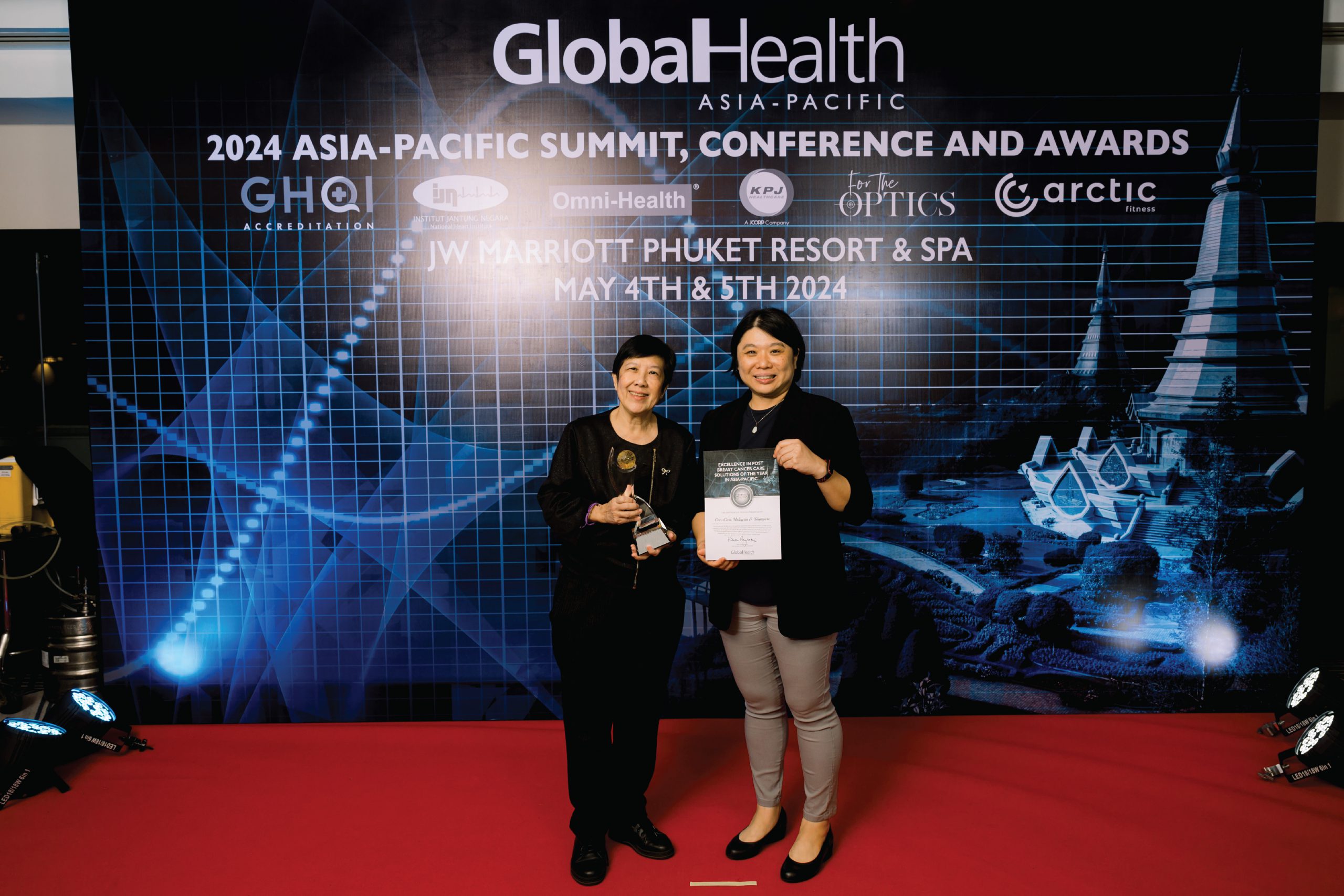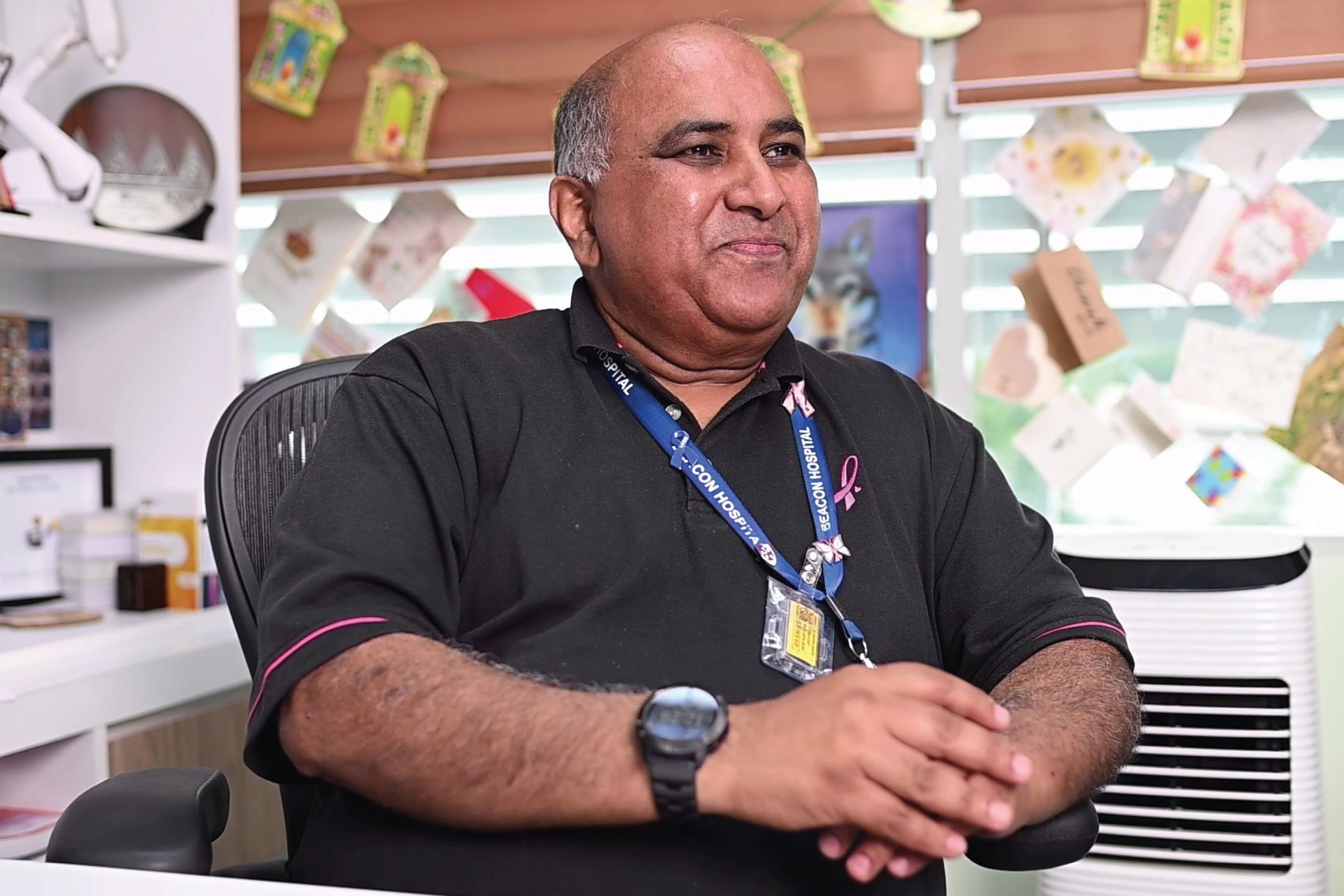- Home
- IOC Inspires – Training Others is the Best Way to Learn
IOC Inspires – Training Others is the Best Way to Learn
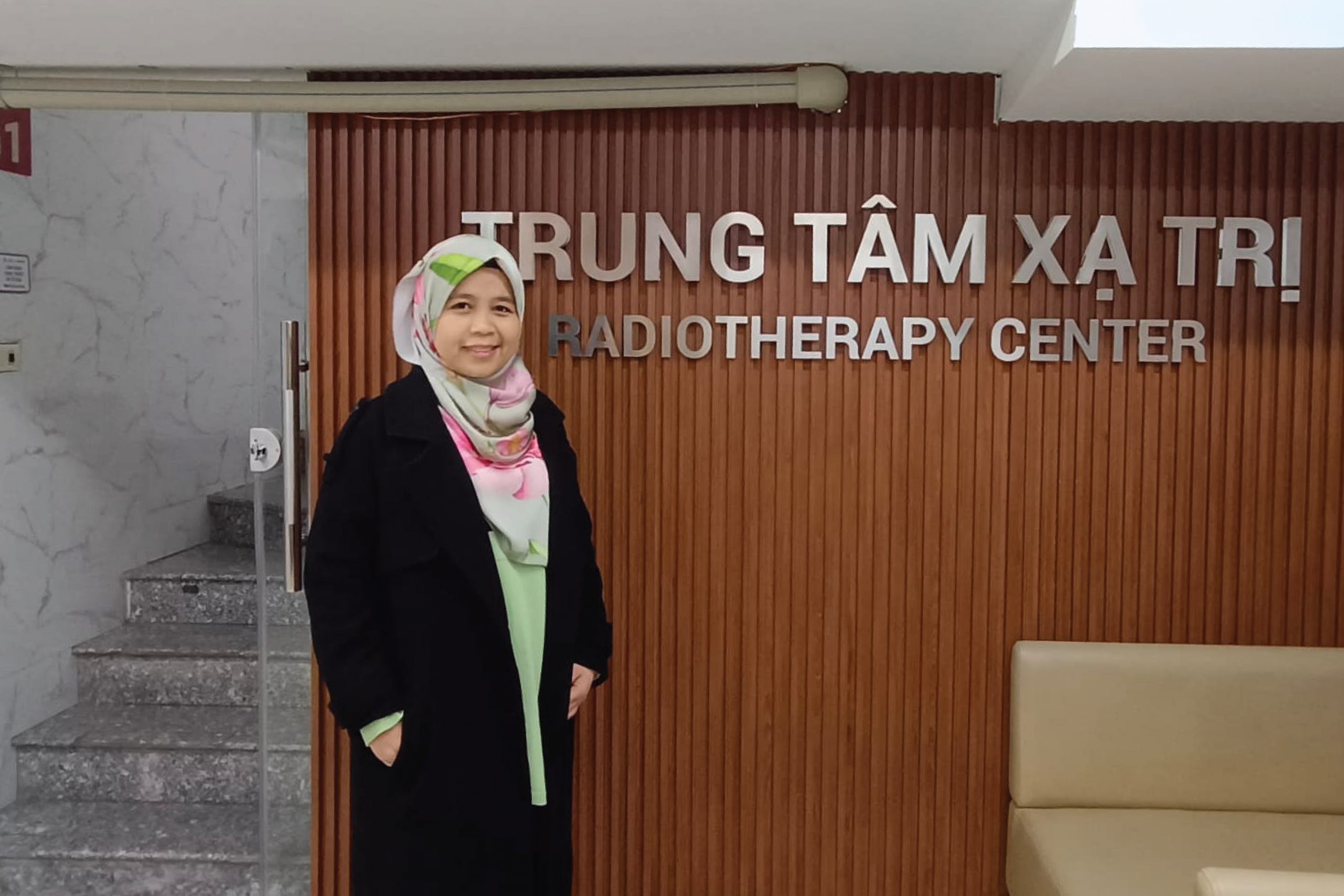
Being tasked to ensure that the best practices are shared between radiotherapy teams in various countries is no easy feat, but for Fadilah, that is the vital role she plays in our organisation.
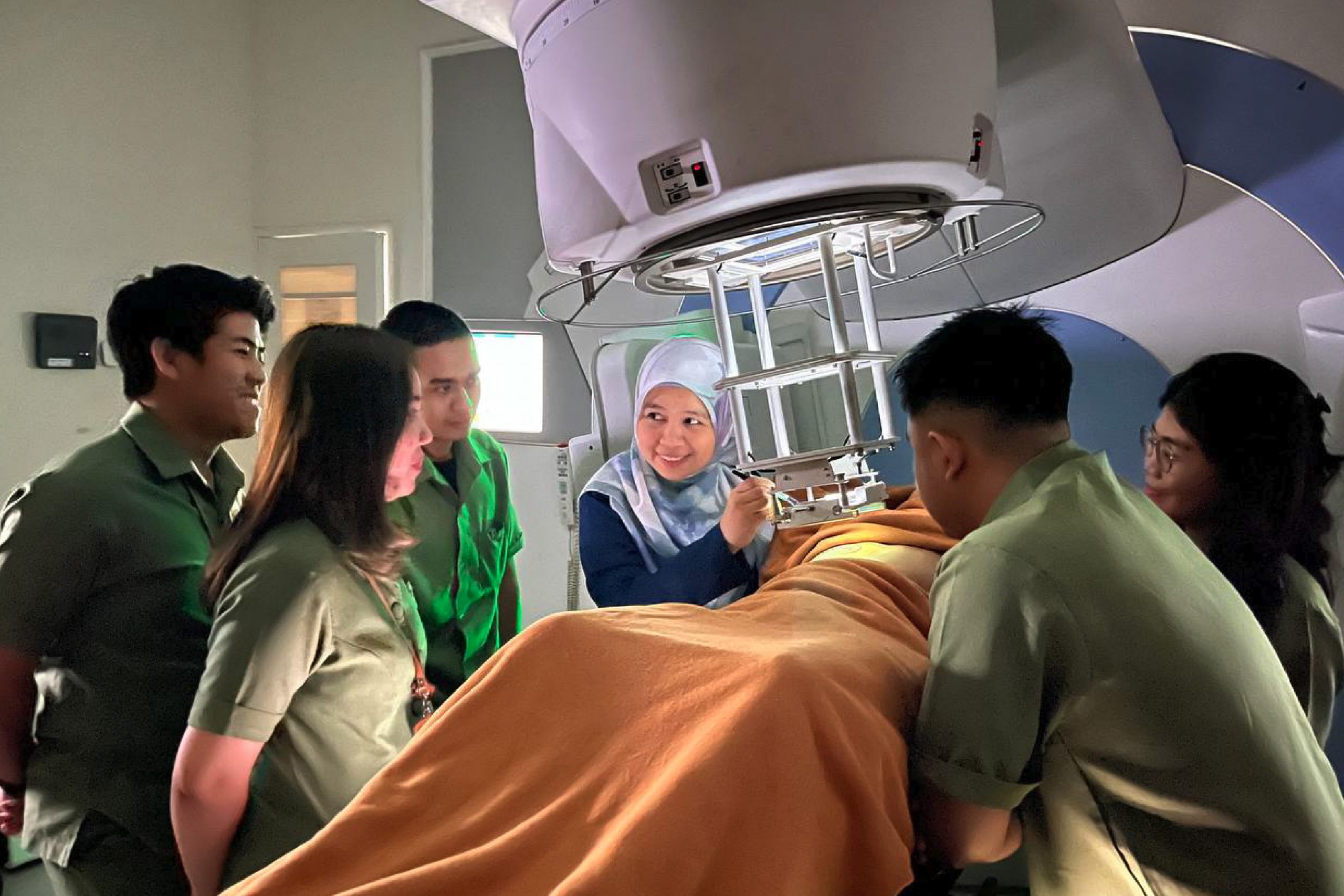
As a Radiation Therapist Trainer at IOC, I am tasked with reviewing and assessing the competency levels of Radiation Therapists (RTTs) across different locations and providing off-site on-the-job coaching and remote support to RTTs.
Even with over 15 years of experience in the field of radiation therapy, when I was first approached by Ms Zoe Lau, Clinical Support and Commissioning Lead, IOC to train radiotherapy teams in different countries, I felt a mix of nervousness and excitement. I was thrilled at the opportunity to share my experience with professionals from various backgrounds and cultures. Despite my 2 years of experience as a lecturer, I had never taught internationally, so this was a new and challenging frontier for me.
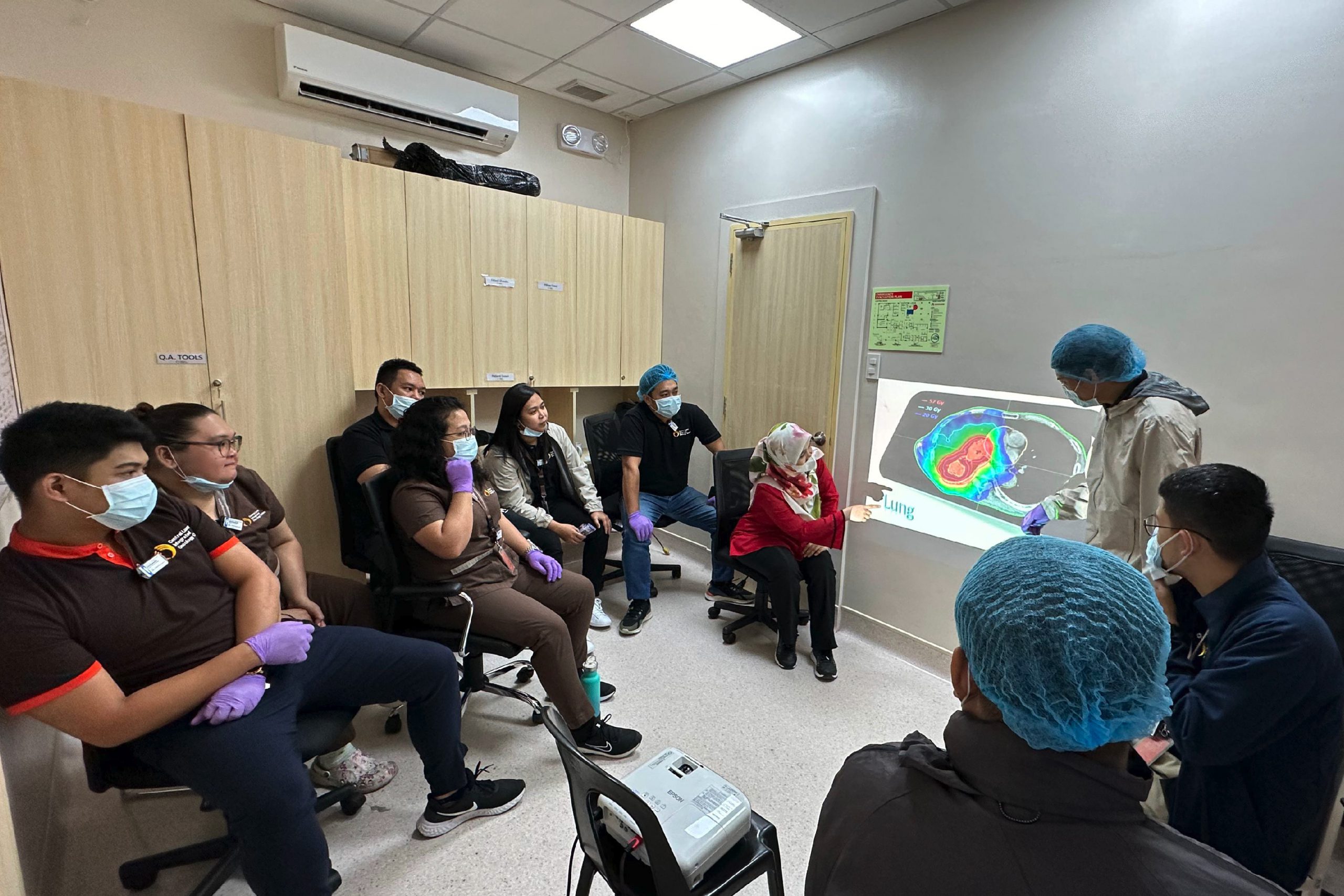
Training radiotherapy teams across Southeast Asia, including Hung Viet Cancer Hospital in Hanoi, Vietnam, Adi Husada Cancer Center in Surabaya, Indonesia and CLIOC in Pampanga, Philippines requires adapting to the unique practices and knowledge levels of each country. Each location has its own set of procedures and standards, which means that a one-size-fits-all approach isn’t feasible.
To bridge these differences and standardise practices across all IOC centres, I prepare extensively by reviewing information from journals, publications, and my own experiences to identify best practices in radiotherapy. This comprehensive preparation allows me to deliver tailored training that addresses the unique challenges and leverages the strengths of each team. By doing so, I ensure that all teams can achieve a high standard of quality and accuracy in patient care, regardless of their starting point.
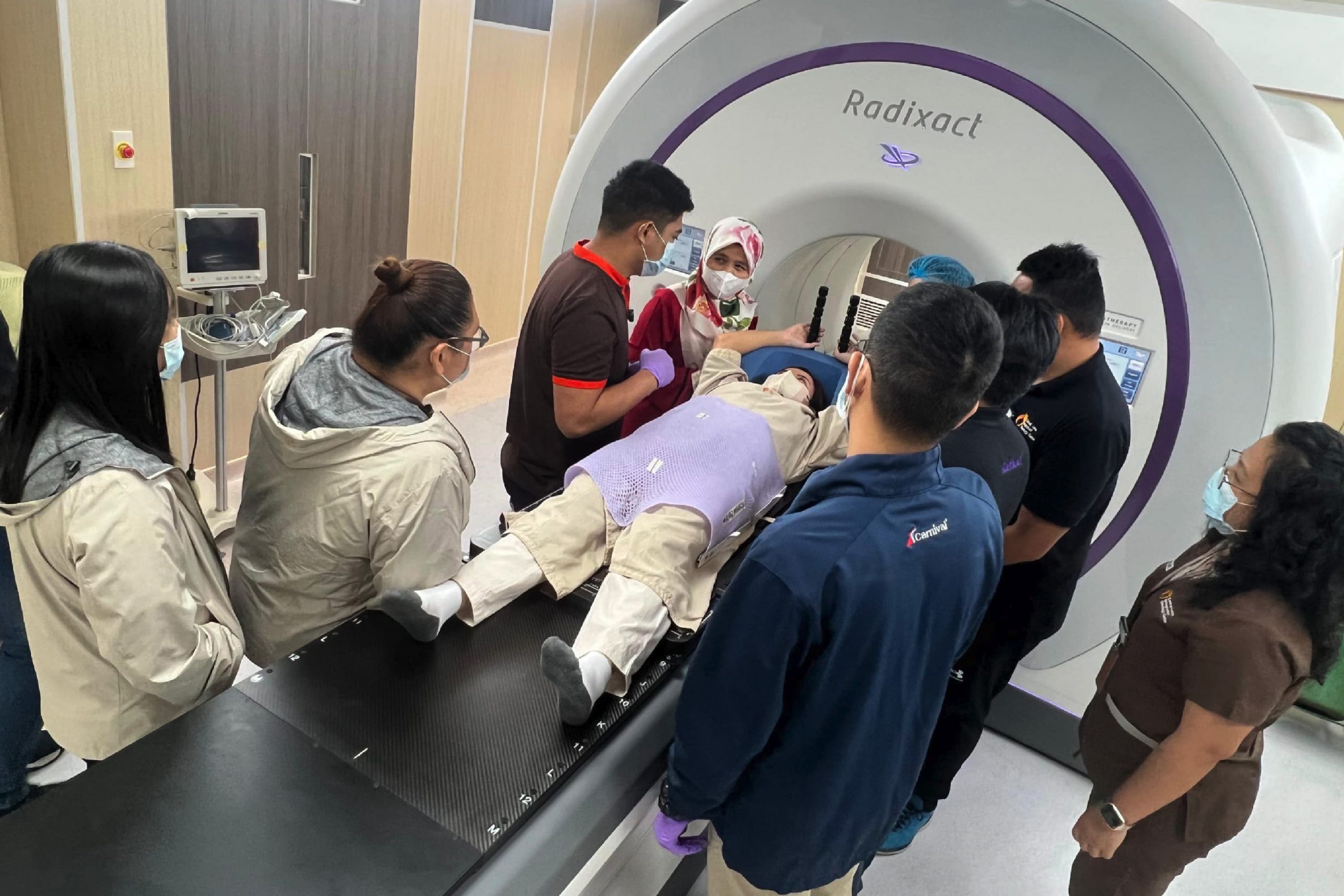
One of the most satisfying experiences during my role as a trainer was working with the radiation therapists at Hung Viet Cancer Hospital. Despite the language barrier, which required a translator or even Google Translate, we managed to achieve mutual understanding. We communicated through sign language, facial expressions, and physically demonstrating techniques on patients. The training process was challenging and progress was slow, requiring me to conduct onsite training about 4 to 5 times a year. However, seeing the remarkable progress the team made was incredibly rewarding.
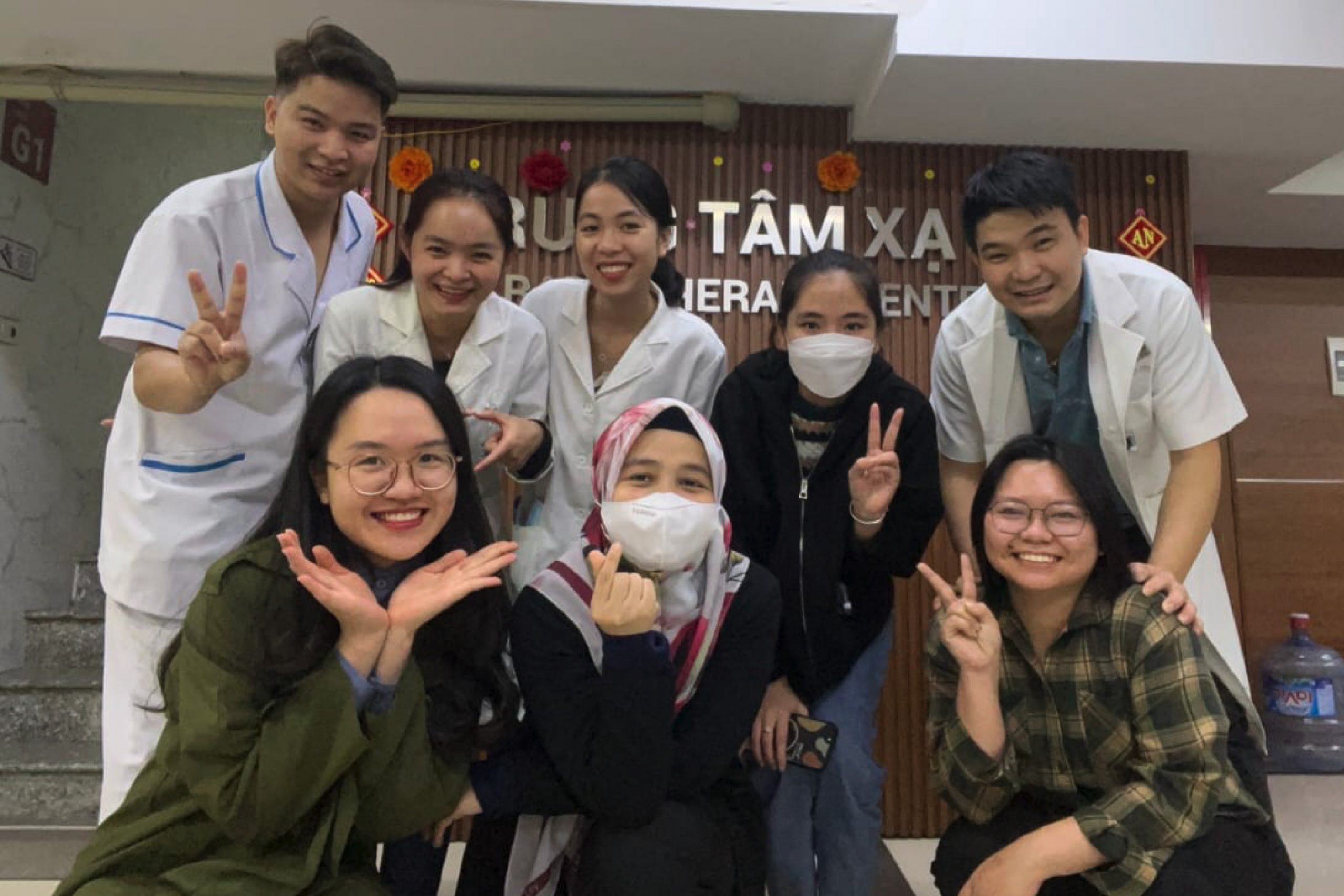
With only 3 radiation therapists, they now treat over 50 patients a day and handle up to 5 CT simulations daily. I am immensely proud of the team. Their dedication and hard work have paid off, and I continue to witness their consistent accuracy in treatment delivery through daily image verification reviews. This accomplishment stands out as a testament to the power of perseverance and effective communication, even under challenging circumstances.
“Training is the best way to learn.” This perfectly encapsulates my experience as a trainer. In preparing to train others, I push myself to learn more, ensuring I have the latest knowledge and techniques to share. This continuous learning process has significantly enhanced my own skills and knowledge as a Radiation Therapist.
Norfadilah Mat Nor,
Manager of Radiotherapy


